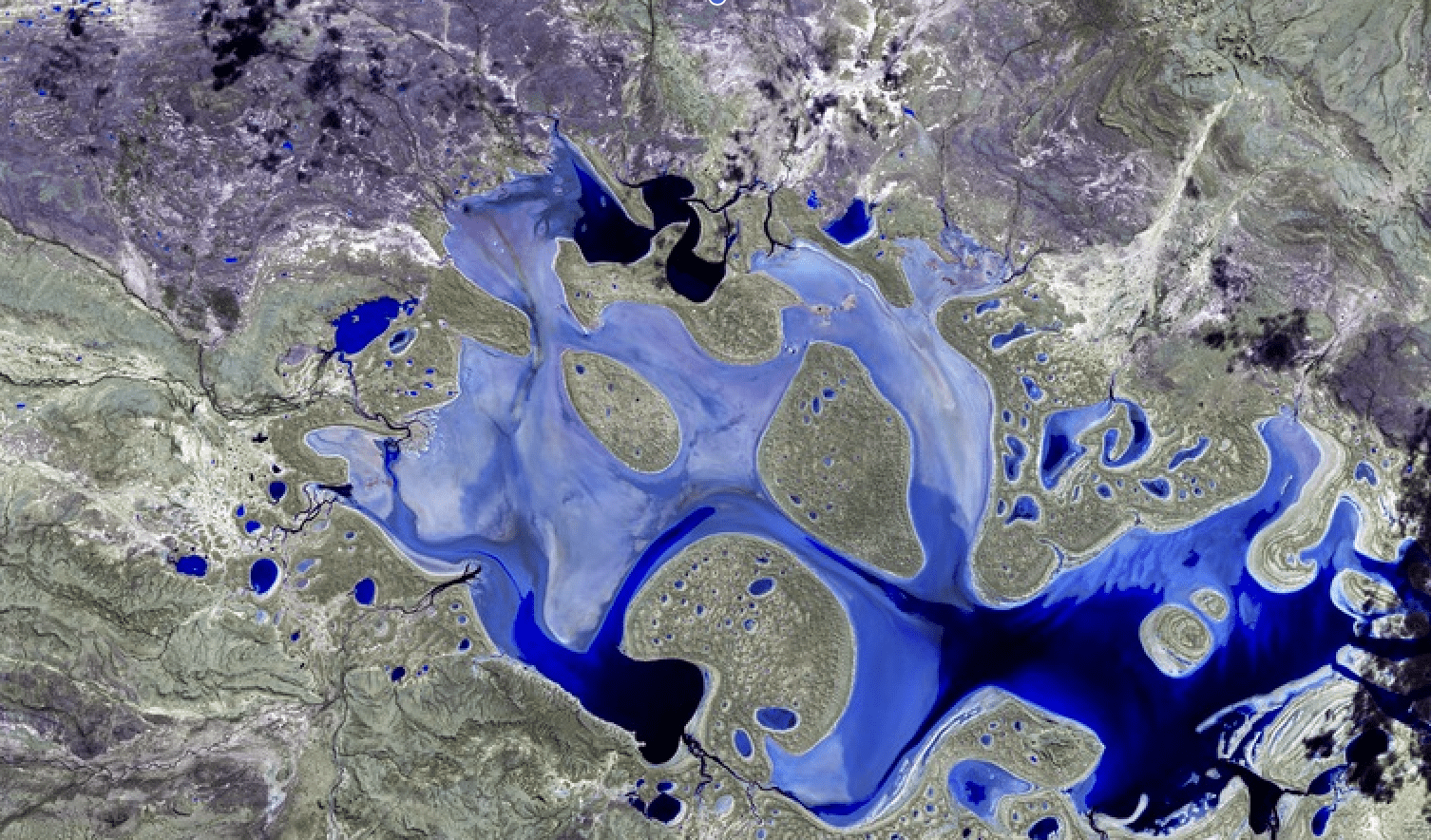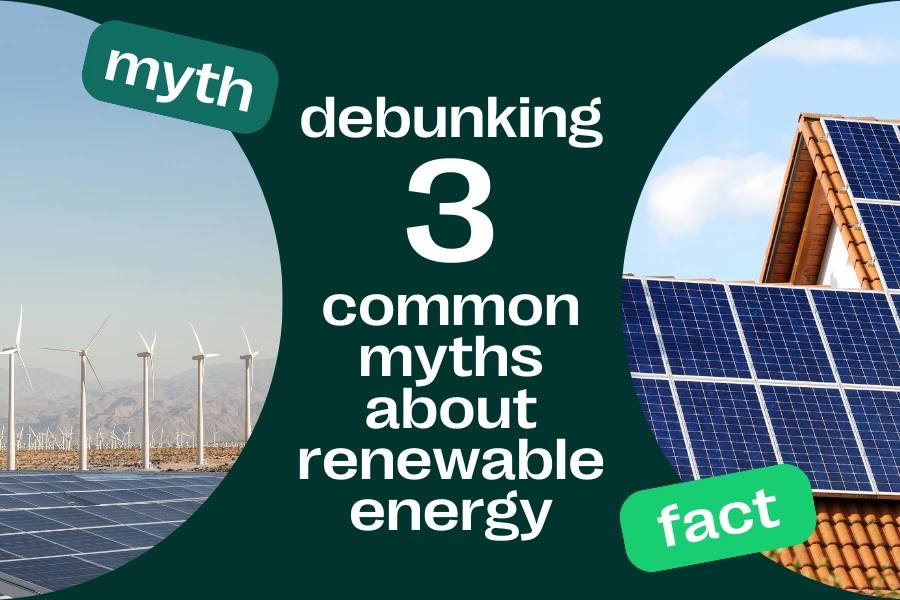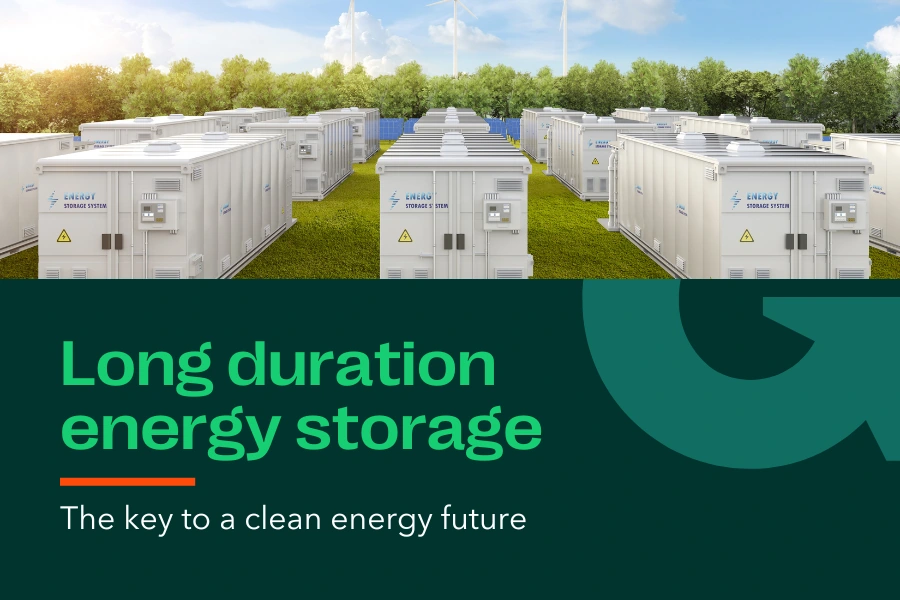IPCC Synthesis Report: Six things you need to know
Joe Dillon

The final part of the Intergovernmental Panel on Climate Change (IPCC)’s sixth review of human knowledge on the climate crisis launched this week after a lengthy negotiation period. This ‘Synthesis Report’ contains no new science but instead draws together key takeaways and conclusions from the IPCC’s three other reports delivered over the last two years.
Why do the IPCC reports matter?
The IPCC is made up of over 700 scientists from over 90 nations. What these reports disclose is the closest thing we have to the globally accepted truth on climate change. IPCC reports are fully endorsed by governments and therefore are harder to ignore than reports from any other sources.
Six key takeaways of the IPCC Synthesis Report
- We have no time left to waste - our chance to avoid the most severe impacts is fast moving out of reach.
- Countries that emit least are feeling the impacts most - more than 3 billion people already live in areas that are “highly vulnerable” to climate breakdown. Increasing weather and climate extreme events have exposed millions of people to acute food and water insecurity.
- The finance is flowing to the wrong places - finance going to emissions reduction projects alone will need to increase by 300% to 600% to put the world on track for a 2 °C or 1.5 °C pathway by 2030. There is enough capital in the global financial system to close the massive investment gap that is currently slowing the adoption of climate technologies and practices, but funds continue to flow to the wrong places.
- No new fossil fuels - burning fossil fuels is threatening human well-being and the stability of much of life on Earth. Opening more fossil fuel reserves risks breaching the goals of the Paris Agreement with the current pipeline of fossil fuel infrastructure alone resulting in a likely temperature pathway of 2.8 °C – 4 °C.
- The inequity gap is getting bigger - Households with incomes in the top 10% emit more than 45% of the world's greenhouse gases (GHG), while families earning in the bottom 50% account for 15% at most.
- We all need to pull together - Governments, investors, central banks, and financial regulators all have a role to play to tackle barriers to climate investment that are contributing to climate change.
What does the sixth IPCC ‘Synthesis Report’ say?
Key findings:
- The world is not on track to limit global temperature rise to 1.5 °C by 2050.
- Temperatures are now about 1.1 °C above pre-industrial levels.
- We have failed to reverse the 200-year trend of rising greenhouse gas emissions, despite more than 30 years of warnings from the IPCC, which published its first report in 1990.
- Humans are responsible for virtually all global heating over the last 200 years.
- Climate-related risks are rising with every increment of warming. “Deep, rapid and sustained” emissions cuts can avoid some future changes, but not others.
On emissions:
- Current policies are likely to result in a 2.8 °C trajectory even if delivered in full.
- Emissions must be cut by 43% by 2030 and 60% by 2035 if they are to be kept under the critical 1.5 °C limit.
- Global emissions must peak before 2025.
- To limit global warming to the relative safety of 1.5 °C, the world’s emissions must reach net zero in the early 2050s and decrease further thereafter.
- In 2019, approximately 79% of global greenhouse gas emissions came from energy, industry, transport, and buildings together and 22% from agriculture, forestry and other land use.
On inequality:
- Countries that have emitted the least are feeling the impacts of climate change the most.
- Households with incomes in the top 10% emit more than 45% of the world's greenhouse gases, while families earning in the bottom 50% account for 15% at most.
- Scientists are calling for individual action such as avoiding long-haul flights, shifting to a plant-based diet and using energy more efficiently.
- Accelerated action on adaptation will be required to close the gap between the measures we currently have and what is needed.
- In the last decade, deaths from floods, droughts and storms were 15 times higher in highly vulnerable regions.
On climate migration:
- More than 3 billion people already live in areas that are “highly vulnerable” to climate breakdown.
- Half of the global population now experiences severe water scarcity for at least part of the year.
- Weather extremes are “increasingly driving displacement” of people in Africa, Asia, North, Central and South America, and the South Pacific.
On adaptation:
- Burning fossil fuels is threatening human well-being and the stability of much of life on Earth. Our chance to avoid the most severe impacts is fast moving out of reach.
- Policymakers must focus on climate adaptation measures alongside efforts to reduce their emissions, noting that options to help citizens, infrastructure, and ecosystems adjust to new climate realities will only become less effective and more constrained as climate impacts worsen.
- All sectors of the economy must undergo "rapid and far-reaching transitions" that involve deep reductions in carbon dioxide, methane, and other greenhouse gas emissions.
On mitigation:
- Investment in mitigation must increase by at least sixfold in Southeast Asia and developing countries in the Pacific, fivefold in Africa and fourteenfold in the Middle East by 2030 to hold warming below 2 °C.
On loss and damage:
- Developing countries will need $127 billion per year by 2030 and $295 billion per year by 2050 for loss and damage and adaptation.
On finance:
- Finance for emissions reduction projects alone must increase by 300% to 600% to put the world on track for a 2 °C or 1.5 °C pathway by 2030.
- There is enough capital in the global financial system to close the investment gap that is slowing the adoption of climate technologies and practices, but funds continue to flow to the wrong places.
- Climate-vulnerable and underdeveloped nations continue to have the most difficulty accessing climate finance.
- More finance currently flows to fossil fuels than climate adaptation and mitigation projects.
On fossil fuels:
- Using the current pipeline of fossil fuel infrastructure alone would result in a likely temperature pathway of 2.8 °C – 4 °C.
- Emissions from existing fossil fuel infrastructure will exceed what is left of the global carbon budget for 1.5 °C of warming by 2030.
- Opening more fossil fuel reserves risks breaching the goals of the Paris Agreement.
On nature:
- Effective and equitable conservation of approximately 30-50% of the Earth’s land, freshwater and ocean will help ensure a healthy planet.
- There is a major focus on solutions that can draw down carbon, including nature-based solutions like soil restoration and tree planting, and man-made solutions like direct air capture (DAC).
On food systems:
- Millions of people have been exposed to acute food and water insecurity as a result of extreme climatic events.
- Climate-driven food insecurity and supply instability are projected to escalate with increasing global warming, interacting with non-climatic risk drivers such as competition for land between urban expansion and food production, pandemics and conflict.
- Many agriculture, forestry, and other land use options provide adaptation and mitigation benefits that could be upscaled in the near-term across most regions.
- Agroecology has "the potential to strengthen resilience to climate change with multiple co-benefits”.
- Sustainable agricultural intensification methods have potential for freeing up land and resources for ecological restoration and conservation efforts.
- Demand-side mitigation of our food system can be achieved through reducing food waste and shifting to sustainable healthy diets. Vegan and vegetarian diets have the largest GHG mitigation potential.
On cities:
- Urban areas offer a global-scale opportunity for ambitious climate action that contributes to sustainable development.
- Growing public and political awareness of climate impacts and risks has resulted in at least 170 countries and many cities including adaptation in their climate policies and planning processes.
Looking past 2050:
- Any "overshoot" of the 1.5 °C limit will have irreversible adverse impacts on some ecosystems, such as polar, mountain, and coastal habitats.
- The larger the overshoot, the more carbon removal technologies and projects would need to be deployed to return to 1.5 °C by 2100, it stated.
Some hope:
- There is still the potential to meet 1.5 °C if we “take more ambitious action now”.
- The shift towards clean energy is happening faster than expected.
- The IPCC have “medium confidence” that an abrupt change in Atlantic currents that could plunge Europe into an ice age would not happen before 2100.
- We can tackle this if we work together. But we must act now.
Context for policymakers
- The report is published as climate ministers and envoys convene in Copenhagen for a two-day meeting hosted by the outgoing COP27 president and the COP28 President-Designate Dr Sultan Al-Jaber. The meeting is focused on the implementation of the ‘Sharm el-Sheikh Implementation Plan’ signed at COP27, and preparations for COP28.
- Currently, industrialised high emitters like the EU and the US have set themselves 2050 climate neutrality goals while emerging economies like China or India are aiming for 2060 and 2070, respectively. This is highly at odds with the report’s findings. China approved more coal projects than all other nations combined in 2022 while the US recently approved a new oil drilling project in Alaska.
- The UN secretary-general has asked the world’s governments to make a series of commitments to accelerate efforts to reduce emissions. Those include a coal phaseout by 2030 for members of the Organization for Economic Cooperation and Development (OECD) — and by 2040 for all other countries — and halting all new fossil fuel exploration.
- With the UK government set to set out its net zero strategy on 30 March 2023 (and how the net zero strategy meets legally binding goals) this report very clearly shows that no new oil and gas can be part of the plan.
- UN Secretary General Antonio Guterres is calling for countries to fast forward net zero targets, saying G20’s rich nations must aim for net zero “as close as possible” to 2040 while emerging nations should set 2050 targets (only emerging economies South Korea, Brazil, South Africa and Argentina meet Guterres’ call).
Commentary
- Hoesung Lee, the chair of the IPCC, said: “This synthesis report underscores the urgency of taking more ambitious action and shows that, if we act now, we can still secure a livable sustainable future for all.”
- Antonio Guterres, Secretary General of the UN, said: “This report is a clarion call to massively fast-track climate efforts by every country and every sector and on every timeframe. Our world needs climate action on all fronts: everything, everywhere, all at once.”
- John Kerry, the US special presidential envoy for climate, said: “Today’s message from the IPCC is abundantly clear: we are making progress, but not enough. We have the tools to stave off and reduce the risks of the worst impacts of the climate crisis, but we must take advantage of this moment to act now.”
- Million Belay, General Coordinator of AFSA and a member of IPES-Food, said: “Food systems around the world are being pounded by the climate crisis now. Every fraction of a degree of warming raises the risk of food shortages and multiple crop failures. Transforming food systems is now an urgent priority and a massive opportunity.”
- Kaisa Kosonen, a climate expert at Greenpeace International, said: “This report is definitely a final warning on 1.5C. If governments just stay on their current policies, the remaining carbon budget will be used up before the next IPCC report [due in 2030].”
- Caroline Lucas, MP (Green Party) says: “If political leaders don’t act with greater ambition now our kids and grandkids will look back at this moment with such anger & bewilderment. How on earth could it be, knowing what we know, we didn’t act faster when we still had time?”


